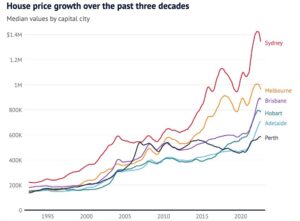
The global property market is poised for significant changes in 2024, driven by evolving trends and shifting dynamics. Understanding these trends is crucial for investors, developers, and stakeholders to navigate the market effectively. This article delves into the top trends shaping the global property market in 2024, providing insights into how these changes could impact the real estate landscape.
1. Rise of Smart Cities
The concept of smart cities is becoming increasingly relevant as technology continues to advance. In 2024, smart cities will be at the forefront of real estate development, integrating technology to improve urban living. These cities leverage data and IoT (Internet of Things) to enhance infrastructure, streamline transportation, and optimize energy consumption. Key features of smart cities include intelligent traffic management systems, energy-efficient buildings, and advanced waste management solutions. The focus on smart cities reflects a growing demand for sustainable and efficient living environments.
2. Sustainability and Green Building
Sustainability remains a top priority in 2024, with green building practices gaining momentum. Investors and developers are increasingly focusing on environmentally friendly construction techniques and materials. Green buildings are designed to minimize their environmental impact through energy efficiency, water conservation, and the use of sustainable materials. Certifications such as LEED (Leadership in Energy and Environmental Design) are becoming more prevalent, with buyers and tenants favoring properties that meet these standards. The shift towards sustainability not only addresses environmental concerns but also enhances the long-term value of properties.
3. Remote Work and Residential Preferences
The rise of remote work, accelerated by the COVID-19 pandemic, continues to influence residential preferences in 2024. Homebuyers are seeking properties that offer dedicated workspaces, high-speed internet connectivity, and proximity to essential amenities. Suburban and rural areas are experiencing increased demand as people prioritize space and a better work-life balance. This trend is reshaping the residential property market, with a growing emphasis on properties that cater to remote work needs.
4. Urban Regeneration Projects
Urban regeneration is gaining traction as cities worldwide focus on revitalizing underdeveloped and neglected areas. In 2024, urban regeneration projects will play a crucial role in transforming cityscapes, creating vibrant communities, and attracting investment. These projects often involve the redevelopment of old industrial sites, derelict buildings, and outdated infrastructure. The goal is to create mixed-use spaces that blend residential, commercial, and recreational facilities, contributing to the overall growth and appeal of urban areas.
5. Affordable Housing Initiatives
Addressing the global housing affordability crisis remains a pressing issue. In 2024, affordable housing initiatives are expected to gain prominence, with governments and private developers collaborating to provide housing solutions for low- and middle-income families. Innovative approaches, such as modular construction and public-private partnerships, are being explored to make housing more accessible. The emphasis on affordability reflects a broader commitment to ensuring that housing remains within reach for diverse segments of the population.
6. Digital Real Estate and Virtual Property
The concept of digital real estate is emerging as a significant trend in 2024. Virtual property and digital assets, such as NFTs (Non-Fungible Tokens) and virtual land in online worlds, are gaining popularity. These digital assets offer new opportunities for investment and property ownership in virtual environments. The rise of digital real estate reflects the increasing integration of technology into various aspects of life, including property ownership and investment.
7. Health and Wellness in Real Estate
The focus on health and wellness in real estate is gaining momentum in 2024. Properties that incorporate features promoting physical and mental well-being are becoming more desirable. This includes amenities such as fitness centers, green spaces, and wellness programs. Developers are increasingly designing properties with a focus on improving the quality of life for residents. This trend aligns with the broader societal shift towards health-conscious living and well-being.
8. Impact of Climate Change on Property Values
Climate change is having a profound impact on property values and real estate investment. In 2024, properties located in areas vulnerable to climate-related risks, such as flooding and extreme weather events, are likely to experience fluctuations in value. Investors and buyers are becoming more aware of the risks associated with climate change and are prioritizing properties with resilience measures and sustainable features. The impact of climate change on property values underscores the importance of incorporating environmental considerations into real estate decisions.
Conclusion
The global property market in 2024 is characterized by a range of transformative trends, from the rise of smart cities to the focus on sustainability and health. Understanding these trends is essential for stakeholders to make informed decisions and capitalize on emerging opportunities. As the real estate landscape continues to evolve, staying abreast of these trends will be crucial for success in the dynamic property market.




